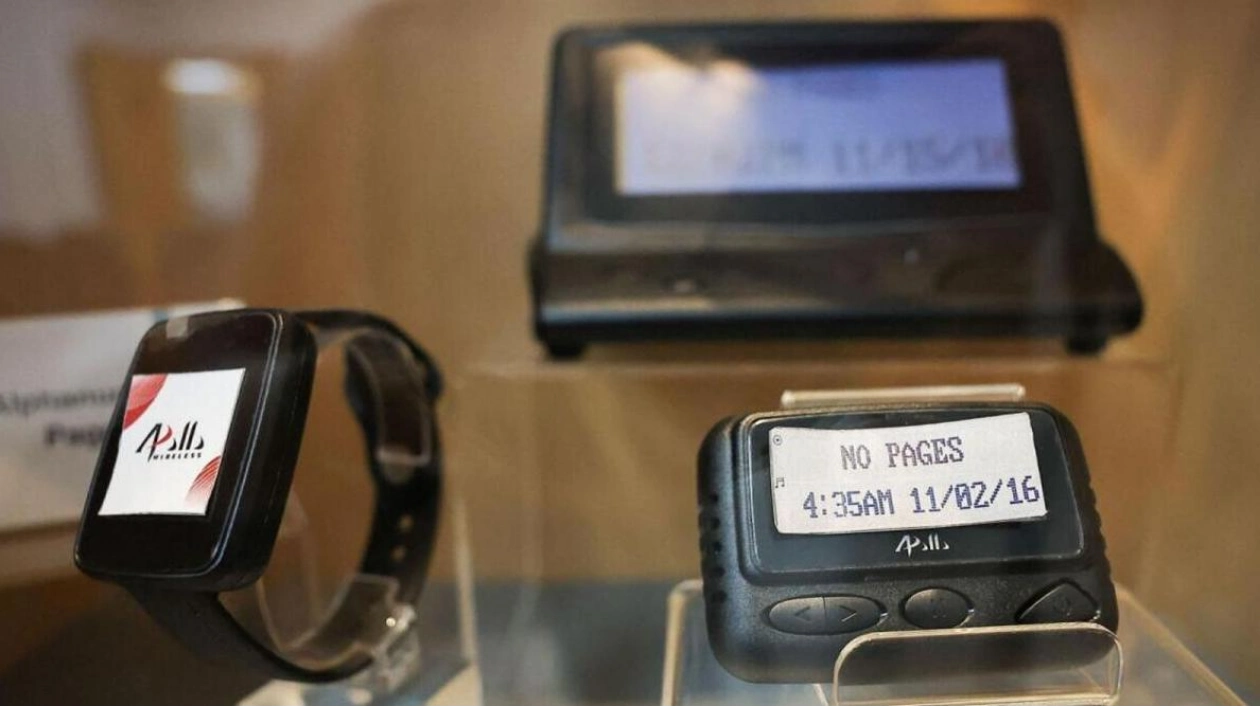These messaging tools are straightforward, dependable, affordable, and secure. Pagers are generally harmless unless they are deliberately made to be dangerous, and they continue to be relevant and useful today, experts informed Khaleej Times.
Once a mainstay of communication for upwardly mobile professionals like doctors and journalists from the 1980s to the late 1990s, pagers or beepers were supplanted by the more versatile cellphones and smartphones at the dawn of the 21st century. However, they were not entirely phased out.
“Pagers are still in use today because they are generally considered safe. They are not linked to any public network, such as the PSTN (public switched telephone network), and a paging service operates as a standalone, privately owned system,” explained Rayad Kamal Ayub, the managing director of Rayad Group, a Dubai-based IT security expert.
Pagers also have a minimal electronic communication footprint, making them less susceptible to hacking or surveillance. They function on radio waves, and an operator can transmit a message via radio frequency without relying on the internet or cellular networks. “They serve as a secure backup to mobile phones for sending SMS or short message service,” Ayub noted.
In essence, pagers are valuable in scenarios where mobile phone use is unreliable. “What occurred in Lebanon was the physical equivalent of planting an IED (improvised explosive device) in a pager. The same could be done with older mobile phones that have removable batteries,” Ayub observed.
Though outdated, pagers are still in use. Rex Bacarra, Ph.D., a university professor of Philosophy and Ethics based in Abu Dhabi who last used a pager 25 years ago, said he was not surprised to learn that pagers were still used in areas where mobile phone use is challenging.
“It’s 2024, and pagers are largely obsolete for everyday use since mobile phones have dominated communications. However, they remain relevant in certain industries due to their simplicity and ability to function in low-signal areas,” he told Khaleej Times, adding: “Pagers are still used for sending short messages where constant communication is crucial, such as in hospitals, where they are used to call a doctor to an emergency.”
Bacarra added: “I don’t believe pagers are dangerous—they require very little power, unlike smartphones, and they are highly reliable in environments with limited cellphone coverage.”
“By comparison, pagers are safer than mobile phones. However, messages sent through pagers are not encrypted, unlike digital phones, and can be easily intercepted. But generally, both pagers and mobile phones are safe. Let’s be realistic, though, as incidents like the Samsung battery explosions from years ago highlight the risks associated with using devices with lithium-ion batteries. Other issues, such as overheating, manufacturing defects, or incompatible chargers, can often lead to dangerous situations,” Bacarra continued.
He added: “The question is: Do the benefits outweigh the costs? Mobile phones are currently indispensable due to their features that benefit people more than the risks associated with them. The same applies to pagers.”
Ayub concurred. He stated that there are no security concerns with a pager unless it has been tampered with. “The hardware could have been altered before being delivered to users,” he added, explaining: “It’s worth noting that pagers are manufactured in small quantities and could be easily converted into an IED.”
Ayub offered advice: “We should purchase our electronics from a reputable source and avoid the grey market without warranties or a clear inventory source.”
Meanwhile, Volker Turk, the United Nations High Commissioner for Human Rights, has called for accountability regarding the Lebanon pager blasts. He described the blasts as “shocking” and stated that their impact on civilians was “unacceptable.” The explosions resulted in 12 deaths, including two children, and injured nearly 3,000 others.






